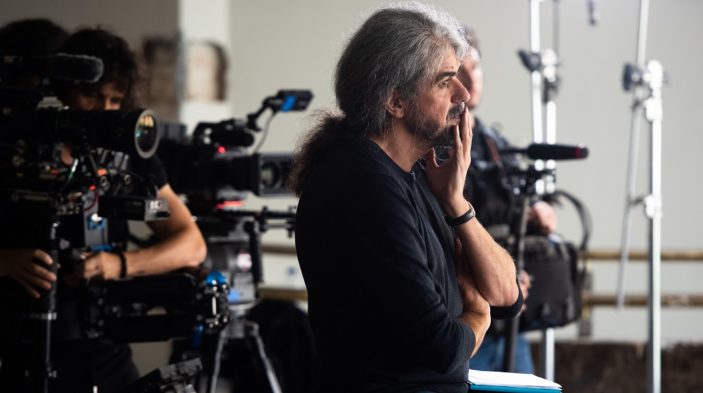
With The Good Boss currently screening in Australian theatres (you can read our review here), Peter Gray spoke with the film’s writer and director, Fernando León de Aranoa, about creating such an interesting character, balancing the tone between humour and drama, and working with Javier Bardem, an actor he trusts enough to take risks with on set.
The narrative description for The Good Boss is about an employer who interferes with the lives of his employees. Even though that is essentially what takes place, your film goes deeper than that. Can I ask how this story originated for you?
The idea for the character and the film started 10-12 years ago. We were in a crisis in Spain and I had heard about someone who was interfering with his workers and their personal problems in order to improve the productivity of his factory. I felt on the one hand that was very funny and could be a disaster because of him going that far, but, on the other hand, I felt like it was giving me the chance to explore labour relationships. I started writing the script and it took some time, as you can see. In the last 10 years they changed labour laws in Spain regarding the rights of the workers, and each time they changed, it got worse and worse and worse. All of that fuelled my writing. I was upset and I felt like that all had to be in the film.
The humour in the film is quite natural and less exaggerated. Were you ever finding it was becoming more humorous than intended, and you had to find a balance in scaling it back in order to tell your story?
In the beginning I felt that tone between humour and drama was subtle and very clear in my mind. The humour in the film isn’t coming from Spanish topics, it’s coming from deep inside the characters. The challenge in making the film was finding the balance through the acting and the music.
Javier Bardem’s character Blanco is someone that you build sympathy for. It could’ve been very easy to make him a caricature or someone overtly hateful, but you can see he means well and his manners are a type of seduction technique. How was it in creating a character like that?
It’s funny that you mention seduction and manners. He is a charismatic character and he knows how to deal with people, he’s used people since he was very young and he knows how to use that power. You can tell he has power in just the way he walks. Even if he was dressed differently, you can tell he’s the boss. Blanco isn’t used to frustration, he’s used to everyone agreeing with him, and what happens in the film is that he’s aiming for this award and he will do whatever is possible to get it.

I mention balance without any intention of using it as a pun, but the idea of the business being based around scales seems to be a pointed metaphor for how Blanco slowly loses his grip on the situation. Am I reading that correctly?
Yeah, absolutely. I made that decision very early in the process. I knew that so much was taking place within the factory, so I needed to know what the factory was about. The scales weren’t just about justice and balance, it was about the uncertainty principle. You can’t control everything. There is always something out of your control. I felt that was interesting.
This is your third time working with Javier. Did you always have him in mind for this role?
Not in the very beginning. As a screenwriter you’re not always thinking of the actors, and I’m used to not making that decision for so much of my career. I prefer to think of the character as someone who exists only in my imagination. You don’t want to write something for somebody because what if (they) say no? I offered him the role (though) and I was very lucky he said yes and liked the film.
Is he quite a collaborative presence? Did you and him work closely on forming Blanco?
Absolutely. He’s very respectful with the director’s and the writer’s work. The first thing was that he liked the character on the page, which is the best thing that can happen. We worked on it (together) to elevate it off the page and he brought a lot about the physicality of the character. The way he walks, the way he touches the employees… owning them. Those are thing that Javier is great at bringing. Because of the three films we’ve done together we trust each other a lot, and I feel like I am safe with (him). We like to explore things and take some risk, and when you take risk (sometimes) you can find something special.
The Good Boss is now screening in Australian theatres.
